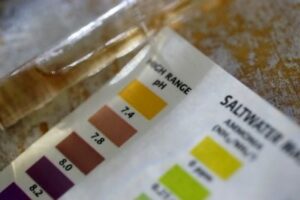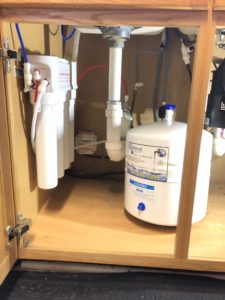When you’re purchasing a new house or commercial building, you are also investing into local utility systems. From water to electricity and gas, each resource has a set of systems and regulations tied to them.
So, how do you find out if the local water quality is satisfactory, and that your house will not face unforeseen water issues in the future?
By asking the right questions to the right people. Your local water utility company is typically the one you need to contact with a set of queries. Let’s find out all about it — what to ask, how to find them, and how to create a lasting partnership.
Water utility companies can be a government, municipal, or private unit which is responsible for providing household and drinking water in your area. They also take care of wastewater management.
You will often work with a private water company — not government or municipal — when it comes to home water treatment, commercial water treatment, installation of systems, and more.
Have you ever wondered, “how can I find well water maintenance near me?” or “what is the local water quality in my area?”
Most information on the quality of water, testing services, and installations such as water well pumps are provided by your local water utility company. Thus, it is crucial that you partner with the right local water company near you.
Here are 7 questions you should ask your local water company when hiring them for any water testing or installation services.
All public systems lose water during distribution. And while you’ll not see news about this in your local newspaper, there are multiple loopholes that lead to water loss.
A transparent water utility company should be able to provide an estimate of the volume of water loss every year for your knowledge and information. This also helps ensure you understand your water usage and consumption.

In the United States, the Environmental Protection Agency (EPA) has mandated water systems to supply an annual local water quality report. These reports show contamination levels– if the reports are high, the utility needs to alert users about them.
Finding out about such alerts can also give you a general idea of the local water quality.
Installing a water treatment system comes with the responsibility of regular water testing. You can find out how often water quality tests are done on the distributed water.
At the same time, if you have a system installed in your facility, it becomes your responsibility to conduct regular tests from a certified laboratory to ensure water quality.
Ask your local water company if they offer water testing and set up an annual appointment with them to stay consistent and on top of your water.

Here, keep in mind that a single treatment system may not treat multiple water problems. So, when you start considering, “I’ll just go for well water maintenance near me”, first check with your contractor about the most effective water filtration and purification method based on the results.
Some of the most common water quality issues that require water treatments include hard water, contaminations, and odors.
Before you decide on installing a new water treatment system, get a basic idea of how it works. There may be routine maintenance issues, or the system may affect other areas of you home.
Your local water company should be polite and patient in explaining their different options and how each one works so you feel confident and sure in your purchase.
Always talk about your insurance coverage, warranty options, and more when investing in a new water treatment system.
Sometimes, it can be hard to determine who to call if there is a failure of a water treatment system — including leaks or flooding — so understand your coverage options before you’re facing an emergency. Your water company should be helpful in navigating you through the process and understanding your coverage options.

A point of use (POU) is a single tap system installed under the kitchen sink. It provides clean water to only that tap. If you want cleaner drinking or cooking water, this is an easy option to go for.
A point of entry system (POE) treats all incoming water. This results in a whole house water treatment, offering better water quality for all usage, from drinking to bathing, laundry, etc.
If you are looking for maintenance on your water well pump, learning all about these water utility parameters can help you avoid unnecessary costs and hassle. Your water company will be able to answer these questions in full.
From testing the local water quality to providing trusted advice on water well pump installation or maintenance, our experts are happy to help with water-related services.
We are a Maryland water company with proven experience in overcoming local challenges and understanding the utility system of Maryland inside out. Contact us to get the best water utility solutions for your house or commercial building.
National Water Service has been providing residential & small commercial water treatment, plumbing & well pump services for over 45 years. We specialize in water treatment, filtration & purification solutions as well as general plumbing to ensure clean, safe water for our customers in Maryland, DC & Northern Virginia.
Mon - Thurs
7:00am - 5:00pm
Friday
7:00am - 4:00pm
Sat - Sun
Emergency Service Available
National Water Servicing Corporation — 2025 All Right Reserved ™